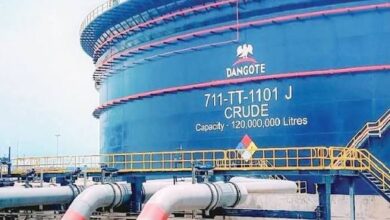Nigeria’s Oil Output Rises To 1.3 Million Barrels Per Day
...As Private Sector Activities Slow Down In July 2024

By Edu Abade
The Organization of Petroleum Exporting Countries (OPEC) has disclosed in its August monthly oil market report that Nigeria’s oil production for July 2024 increased by 30,000 barrels per day (bpd) from 1.27 million bpd to 1.30 million bpd.
In its 32nd Issue of Nigeria Economic Update, the Centre for the Study of the Economies of Africa (CSEA) stated that this makes Nigeria the largest oil producer in Africa and brings the country closer to OPEC’s 2024 production quota of 1.38 million bpd, though significantly lower than the Federal Government’s 2024 budgeted benchmark of 1.78 million bpd.
The report also showed that crude oil prices increased by $1.21 to $84.43 per barrel in July, signifying strong potential for the country’s foreign reserves and revenue. Both increases will benefit the Nigerian economy because they will boost oil exports, which will increase foreign exchange inflows and strengthen the nation’s foreign reserves.
However, challenges such as oil bunkering, illicit refining, crude oil theft and other production-related issues have ravaged the oil sector, causing oil production to fall below budget and OPEC benchmarks.
With OPEC increasing Nigeria’s crude oil production quota to 1.5 million bpd in 2025, sustained efforts are required by the government to address these challenges and capitalize on its oil production potential.
The CSEA also urged the government to implement stricter security measures and enhance surveillance around oil facilities. This could involve investing in advanced technology for monitoring and tracking oil production to help reduce losses and improve overall efficiency.
Meanwhile, the Central Bank of Nigeria’s (CBN) Purchasing Managers’ Index (PMI) survey report has revealed that the composite PMI stood at 49.7 in July 2024, an improvement from 48.8 recorded in June 2024. The PMI measures a country’s economic activity direction and extent.
An index below 50.0 points indicates a contraction in business operations, while an index over 50.0 points indicates a growth in business activities. A 50.0 index denotes no change in the circumstances.
The PMI value for July, which is below the critical threshold of 50.0, is the thirteenth consecutive contraction recorded by the CBN and signifies that business operations are still contracting, though at a slower pace compared to June.
A sector by sector disaggregation of the PMI shows that industry and agriculture recorded contractions of 48.3 and 49.7 respectively, while services recorded 50.3, suggesting that the services sector recorded a modest expansion, showing resilience and growth.
However, manufacturing, production, and agricultural activities continue to contract as a consequence of issues that have persisted in the sector, such as inadequate infrastructure and fluctuating commodity prices.
To resolve these challenges, there is a need for the government to make targeted investments in infrastructure and technology to boost productivity and competitiveness. Supporting farmers with better access to modern equipment, improved irrigation systems, and agricultural research can boost their productivity and minimize contraction.










